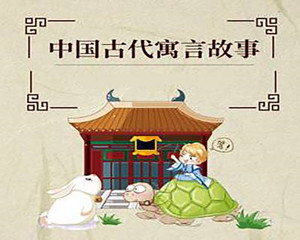古代寓言原是民间口头创作,文学体裁的一种。含有讽喻或明显教训意义的故事。它的结构简短。主人公可以是人,可以是动物,也可以是无生物。多借用比喻手法,使富有教训意义的主题或深刻的道理在简单的故事中体现,而还需要自己去理解,思考,这就是和西方寓言的不同之处。

《古代寓言·耐性》
一仕官将之官,其厚友送之,嘱曰:“公居官无他难,只要耐烦。”仕者唯唯。
已而再嘱,三嘱,犹唯唯,及于四五,其人忿然怒曰:“君以我为呆子乎?只此二字,奈何言之数四?”
厚友曰:“我才多说两次,尔遂发恼,辄为能耐烦可乎?”
——《雪涛小说》
Patience
A man was going to take up an official post. A close friend came to see him off. "One thing you must remember when you become an official," he said, "Is that you must always be patient."
The man replied that he would. His friend then repeated his advice three times, and three times the man nodded in assent. When for the fourth time his friend repeated his counsel, the man became angry and said, "Do you take me for an idiot? Why do you repeat such a simple thing over and over again?"
His friend sighed. "It is not easy to be patient, see!" he said. "I have only said that a few times, and here you are already impatient."
Stories by Xue Tao
(杨宪益、戴乃迭 译)
更多精品翻译素材,敬请关注可可英语。











